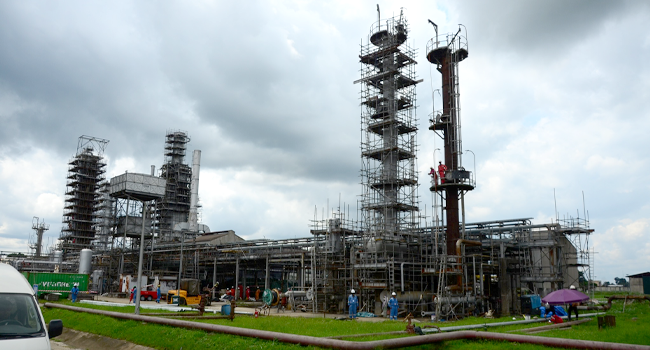The Nigerian presidency has unveiled plans to fully privatize three state-owned refineries: Port Harcourt, Warri, and Kaduna.
This decision marks a significant shift in the country’s approach to managing its oil refining assets, which have been plagued by inefficiencies for decades.
Sunday Dare, Special Adviser to the President on Media and Public Communications, confirmed the development in a statement shared on his official X (formerly Twitter) account on Sunday.
“The full privatisation of Port Harcourt, Warri, and Kaduna refineries is in progress,” Dare announced.
“A New Era for Refining in Nigeria”
The announcement has sparked discussions about the future of Nigeria’s oil sector.
For over 40 years, the country’s refineries have struggled to function, despite massive investments.
Trillions of naira have been spent on maintenance and rehabilitation, yet the facilities have remained largely inactive.
This inefficiency has forced Nigeria to rely heavily on imported petrol, putting immense strain on foreign exchange reserves.
“The days of fuel queues will end as local refining gradually meets domestic demand,” Dare promised, expressing optimism about the plan.
Long-standing Challenges
Nigeria’s four national refineries have become symbols of waste and missed opportunities.
Despite being an oil-producing giant, the country imports most of its refined petroleum products.
Fuel shortages and long queues at petrol stations are common, disrupting economic activities and daily life.
Industry experts have repeatedly called for privatization or public-private partnerships to address the sector’s challenges.
The recent announcement suggests the government is finally heeding these calls.
NNPC’s Bold Move
In August 2024, the Nigerian National Petroleum Company (NNPC) Limited outlined plans to involve private operators in managing the Warri and Kaduna refineries.
A circular from NNPC revealed its intent to collaborate with reputable operations and maintenance (O&M) firms.
The goal, according to NNPC, is to ensure the reliability and sustainability of the facilities.
“The Nigerian National Petroleum Company (NNPC) Limited seeks to engage reputable and credible O&M companies to operate and maintain the Warri Refining and Petrochemical Company (WRPC) and Kaduna Refining and Petrochemical Company (KRPC),” the circular stated.
This partnership is expected to address Nigeria’s petrol supply challenges and bolster energy security.
A Step Towards Economic Sustainability
The presidency’s announcement aligns with broader efforts to reform Nigeria’s oil and gas industry.
Privatization could attract much-needed investment, improve efficiency, and reduce government expenditure on the refineries.
It also reflects the administration’s commitment to diversifying revenue sources and reducing dependency on crude oil exports.
Industry stakeholders believe privatization could lead to increased job opportunities and better services for Nigerians.

